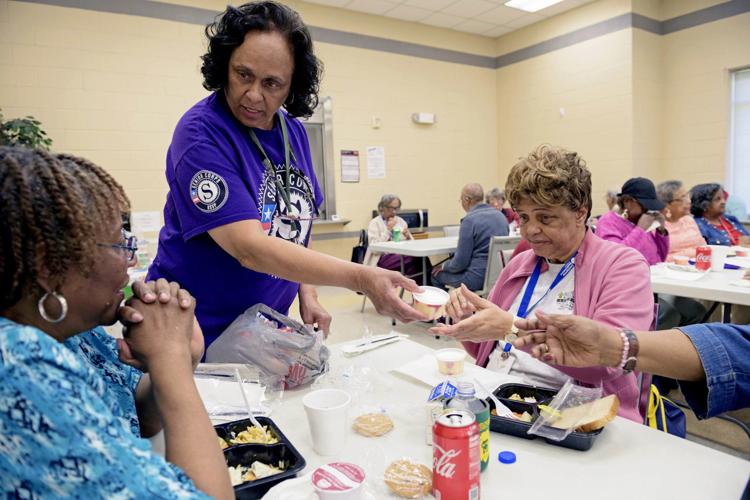As the cost of living continues to rise across the New Orleans region, many older adults are struggling to afford retirement, a new report has found.
More than one-third of households in Orleans Parish have at least one member over the age of 60, according to a report from the nonprofit New Orleans Council on Aging. Of those households, more than half have an older adult living in poverty. The social services organization's report also found that the metro area has the greatest rate of food insecurity among older people in the nation, with about one in eight seniors struggling to afford food.
"Currently, in Orleans Parish there are 10,667 older Americans that are food insecure, meaning they do not have access to healthy food on a regular basis," the report noted. "Of this number, 4,174 also have very low food security, meaning they are skipping meals to cover other basic needs such as medicine and/or housing."
The report's research is a compilation of data from the U.S. Census Bureau, the Data Center, national hunger relief organization Feeding America and other sources.
At the Guste high rise senior living apartments off Simon Bolivar Avenue, some residents feel the financial strain daily.??
Marcel Jenkins, 76, worked as a carpenter for most of his life but retired after he nearly lost a finger in a table saw accident. A Guste resident for about a decade, he has a car and is able to manage most of his errands himself, but said still he creates a rough budget every month to make sure he has enough money to cover food, medicine and his bills.
"Things have gotten worse," Jenkins said. "You go to the store one month and things are a certain price. You go back the next month and get just about the same items and it's up a little higher."
Norris Stewart, 72, has been a Guste resident for six years. He said his income is a patchwork of a modest savings, government assistance and disability income he gets after an injury and knee surgery.?
"As you get older, things don't get much easier," he said. "Basically you're on your own."
And for older residents without savings or income, the hardship can be even greater, the report found.?
New Orleans has seen its population of elders over 60 decline from about 82,000 in 2019 to 79,200 in 2023, according to the report. The Council on Aging found that the drop was caused by higher death rates during the COVID-19 pandemic and outmigration fueled by rising costs and little financial and social support.
The Council found that on average, most seniors living alone need an additional $1,200 after paying rent each month to cover expenses, a sum many do not have.?
Howard Rodgers, executive director for the New Orleans Council on Aging, said the issues presented in the report will only become more acute as residents in New Orleans continue to age and strain already limited resources. In 2025, the oldest members of Generation X — often defined as people born between 1965 and 1980?— will start to retire and by 2030, an estimated 30% of the population in Orleans Parish will be over 60, he said.
"The data shows that for the 60-plus population, New Orleans is still a food desert for seniors," Rodgers said. "And in terms of economics, many seniors are already below the poverty line. Those problems are only going to accelerate."
Rodgers called on lawmakers and community advocates to expand access to transportation, increase social opportunities to combat loneliness and plan for how an aging population will access grocery stores and other essential needs.
Though budgeting can sometimes be a juggling act, Jenkins said people should not be afraid to retire and take benefits, limited as they are, while continuing to demand resources they have earned from a lifetime spent working.
"People my age, we worked all our lives," he said. "Y'all not giving us nothing. That's our money. ... I retired at 62. I tell anybody, 'When you hit 62, go ahead and take your retirement.'"


